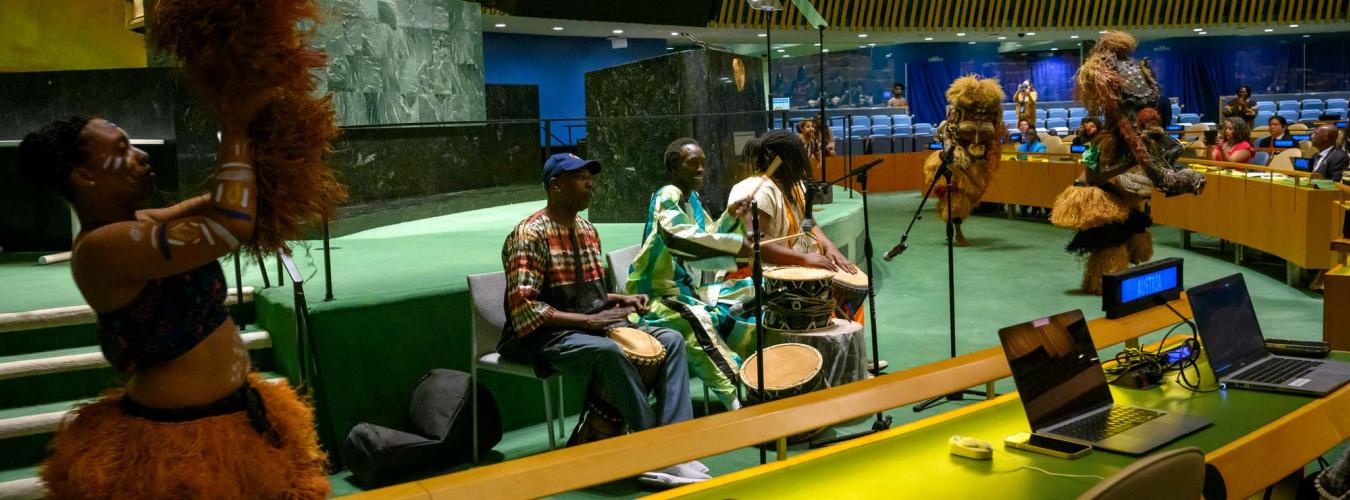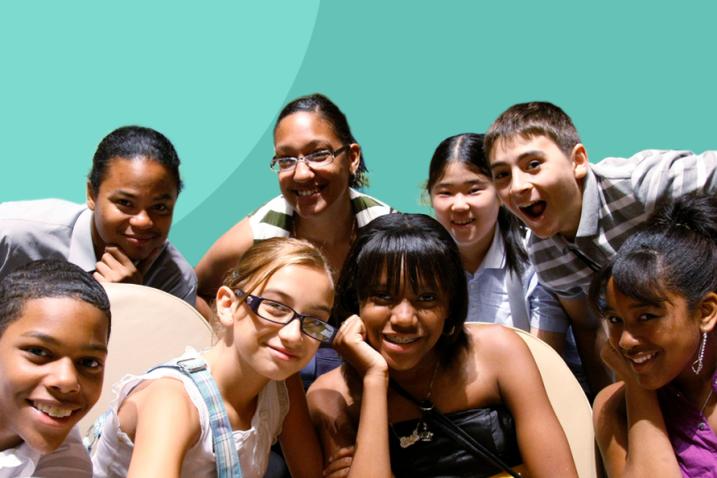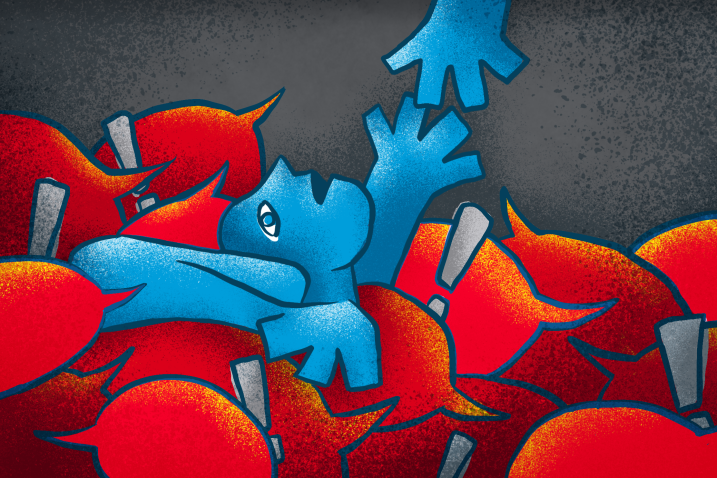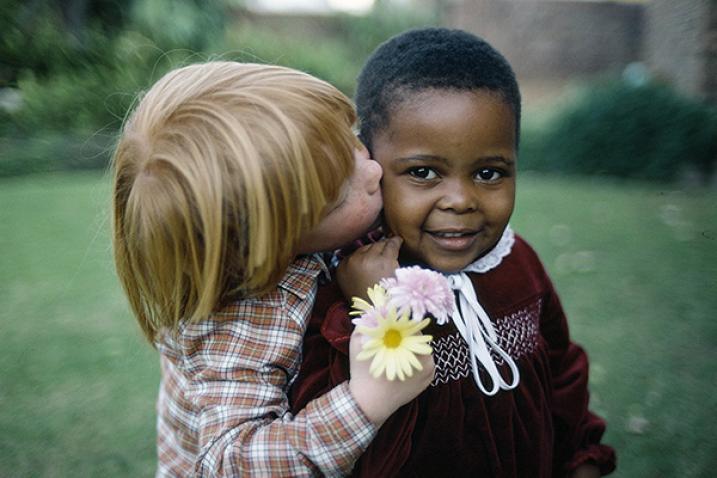Humanity, not racism
The 2024 theme of the International Day is “A Decade of Recognition, Justice, and Development: Implementation of the International Decade for People of African Descent”.
Racial discrimination and the legacies of slavery and colonialism continue to destroy lives and curtail opportunities, preventing billions of people from enjoying their full human rights and freedoms.
This year’s theme is linked to the International Decade for People of African Descent, which spans the timeframe from 2015 to 2024. In proclaiming this Decade, the international community is recognizing that people of African descent represent a distinct group, whose human rights must be promoted and protected.
Around 200 million people identifying themselves as being of African descent live in the Americas. Many millions more live in other parts of the world, outside of the African continent.
Background
The International Day for the Elimination of Racial Discrimination is observed annually on the day the police in Sharpeville, South Africa, opened fire and killed 69 people at a peaceful demonstration against apartheid "pass laws" in 1960.
In 1979, the General Assembly adopted a programme of activities to be undertaken during the second half of the Decade for Action to Combat Racism and Racial Discrimination. On that occasion, the General Assembly decided that a week of solidarity with the peoples struggling against racism and racial discrimination, beginning on 21 March, would be organized annually in all States.
Since then, the apartheid system in South Africa has been dismantled. Racist laws and practices have been abolished in many countries, and we have built an international framework for fighting racism, guided by the International Convention on the Elimination of Racial Discrimination. The Convention is now nearing universal ratification, yet still, in all regions, too many individuals, communities and societies suffer from the injustice and stigma that racism brings.
Principle of equality
The United Nations General Assembly reiterates that all human beings are born free and equal in dignity and rights and have the potential to contribute constructively to the development and well-being of their societies. In its most recent resolution, the General Assembly also emphasized that any doctrine of racial superiority is scientifically false, morally condemnable, socially unjust and dangerous and must be rejected, together with theories that attempt to determine the existence of separate human races.
The United Nations has been concerned with this issue since its foundation and the prohibition of racial discrimination is enshrined in all core international human rights instruments. It places obligations on States and tasks them with eradicating discrimination in the public and private spheres. The principle of equality also requires States to adopt special measures to eliminate conditions that cause or help to perpetuate racial discrimination.
Major UN meetings and events
In September 2021, the United Nations General Assembly brought together world leaders for a one day meeting in New York to mark the twentieth anniversary of the adoption of the Durban Declaration and Programme of Action under the theme of “Reparations, racial justice and equality for People of African Descent.”
In 2001, the World Conference against Racism produced the most authoritative and comprehensive programme for combating racism, racial discrimination, xenophobia and related intolerance: the Durban Declaration and Programme of Action (DDPA). In April 2009, the Durban Review Conference examined global progress made in overcoming racism and concluded that much remained to be achieved. Undoubtedly, the greatest accomplishment of the conference was the renewed international commitment to the anti-racism agenda.
In September 2011, the United Nations General Assembly held a one day high-level meeting in New York to commemorate the 10th anniversary of the adoption of the Durban Declaration and Programme of Action. There, world leaders adopted by consensus a political declaration proclaiming their "strong determination to make the fight against racism, racial discrimination, xenophobia and related intolerance, and the protection of the victims thereof, a high priority for [their] countries."
Coming as it did during the 2011 International Year for People of African Descent, the 10th anniversary was a chance to strengthen political commitment in fighting racism and racial discrimination.
On 23 December 2013, the General Assembly proclaimed the International Decade for People of African Descent commencing 1 January 2015 and ending on 31 December 2024, with the theme “People of African descent: recognition, justice and development.”
#FightRacism
Learn, Speak up, Act!
Raising awareness and gaining support for global action on racism, discrimination, xenophobia and other intolerances

Events
Commemorative Event
21 March 2024, 10:00 am EDT
General Assembly Hall, New York
An event to mark the International Day, featuring remarks by Secretary-General António Guterres; Ms. Ilze Brand Kehris, Assistant Secretary-General for Human Rights; Professor Verene Albertha Sheperd, Chairperson of Committee on the Elimination of Racial Discrimination; Ms. June Soomer, Chair-designate, Permanent Forum on People of African Descent and more.
Resources
Key documents
- International Convention on the Elimination of all Forms of Racial Discrimination (ICERD)
- Declaration on Race and Racial Prejudice
- Durban Declaration and Programme of Action
- Outcome Document of the Durban Review Conference
- Political Declaration adopted at the 10-year anniversary of the Durban Conference
- Resolution proclaiming 21 March as the International Day for the Elimination of Racial Discrimination (A/RES/2142 (XXI))
- Resolution proclaiming the Week of Solidarity with the Peoples Struggling against Racism and Racial Discrimination (A/RES/34/24)
- A global call for concrete action for the elimination of racism, racial discrimination, xenophobia and related intolerance and the comprehensive implementation of and follow-up to the Durban Declaration and Programme of Action (2021)
Office of the High Commissioner for Human Rights
- Committee on the Elimination of Racial Discrimination
- Special Rapporteur on contemporary forms of racism, racial discrimination, xenophobia and related intolerance
- Working Group of Experts on People of African Descent
- Intergovernmental Working Group on the effective implementation of the Durban Declaration and Programme of Action
- Database on practical means to combat racism, racial discrimination, xenophobia and related intolerance





